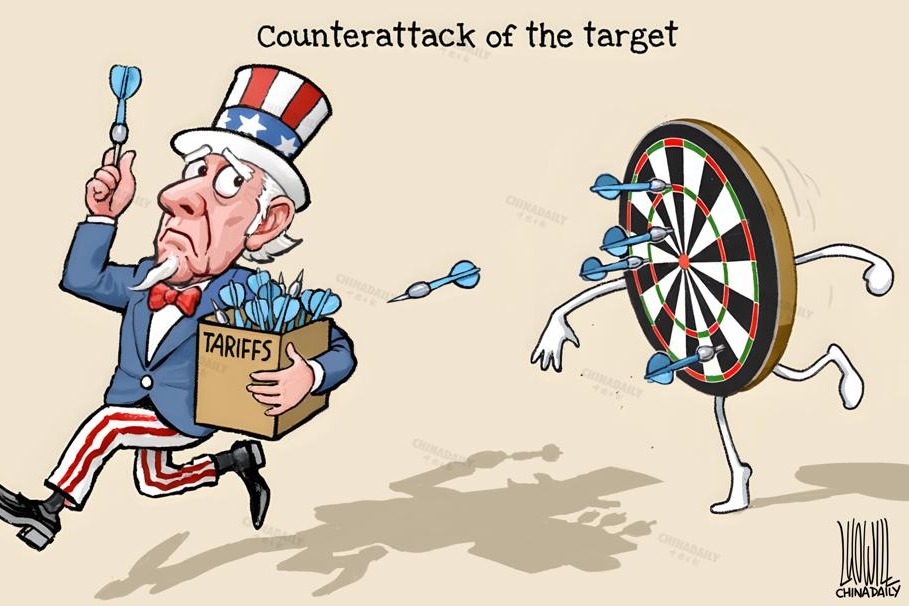Smartening up cities with data


The US plays catch-up as China leads the way in the proptech developments race
Nowadays, the physical spaces where we work, live and play are being transformed into digitized omnichannel experiences, which will soon be tokenized and traded both through crypto and sovereign currencies. Cities around the world are rushing to understand and exploit the value of data.
This includes analysis of the accumulated data of people as they circulate in malls, warehouses and offices. Payments data can help grasp consumer trends in certain neighborhoods; data can help landlords find new tenants; and data on super apps can create omnichannels to make choices easier for consumers and offer a wider array of experiences; developers can use data to develop pop-up strategies; builders can use data to reduce worker accidents; and managers can use data to reduce carbon emissions and utility costs.
All this data will enable a smarter placement of goods, shops and services within buildings, complexes, neighborhoods and cities. Using data, new functions for buildings and new services can be created. Those who do not grasp the digital trend will die on the vine.
The West is starting to sit up and take notice as China is way ahead of other countries in property technology (proptech), thanks to its farsighted experimentation with smart cities and blockchain beginning in 2015. The emergence of the blockchain-based service network and the digital renminbi are the foundations of proptech in China.
The proptech scene in the United States lags behind that in China because the US model is a "bottom up" private sector B2B model aimed at cutting costs, increasing engagement and becoming more competitive. What is missing in the "government is bad" narrative, which has prominence in the US now, is that the digitization of physical assets requires a new and expensive digitalized payment system. That can only be built with public-private cooperation. It is too heavy a chore for even a company such as Amazon or PayPal to transform a 60-year-old system based on checks and credit cards-especially with no super app in sight.
In China, however, a "top down" national strategy has been in place since 2015 to create 500 digitized smart cities. And real estate is clearly part of the overall picture of integrating the seven pillars of its digitization strategy, namely physical infrastructure, 5G, telecommunications, payments, crime prevention, emergency services and energy. There is no way for the private sector to build these pillars alone.
The private sector participates in the preparation of China's five-year plans, identifies the policy implications and rides the wave of their implementation. These plans do not change in material ways, so they provide certainty. Also in China, real estate owners, for better or worse, are diversified owners of property-residential, commercial and entertainment. In the US, they tend to specialize. This is an advantage for China because the best digitized data is always that which is the most integrated.
In conjunction with the blockchain-based service network and both crypto currencies and the digital renminbi, a new world of digitized assets can be analyzed and cross-traded throughout sectors, resulting in a richer database. And China clearly has the first mover advantage. The potential for a massive multi-trillion dollar world of tokenized digital assets traded in a renminbi ecosystem is just beginning.
China's super apps such as WeChat (Tencent), DingTalk (Alibaba) and Lark (Bytedance) make it easy to integrate new apps into the existing digital ecosystem. And these new additions will be able to create immediate productivity gains since integrated economies of scale are created by the millions of small and medium-sized enterprises and hundreds of millions of people.
The US is picking up the pace to digitize the country by utilizing the military relationship with Silicon Valley in order to jump start the wide scale digitization of the country's decrepit infrastructure.
In addition, Amazon and Google are doing many things on the "down low", but the risk here is that these behemoths create vital infrastructure for monopolistic purposes. There is a lot to think about, but the US is now quietly embarking on a new industrial policy-possibly a cheap knockoff of China's.
The author is founder of Schulte Research and a professor of practice of International Business School at Zhejiang University and Singapore University of Social Sciences. He is a co-author of the book The Digital Transformation of Property in Greater China. The author contributed this article to China Watch, a think tank powered by China Daily. The views do not necessarily reflect those of China Daily.































